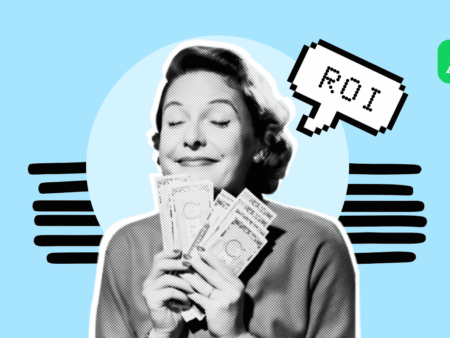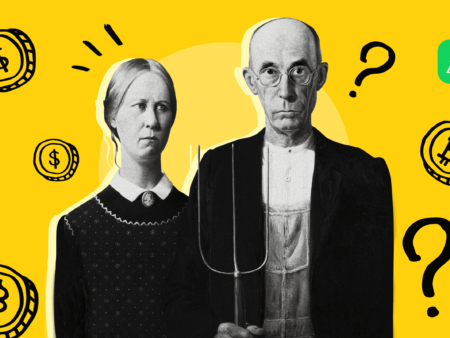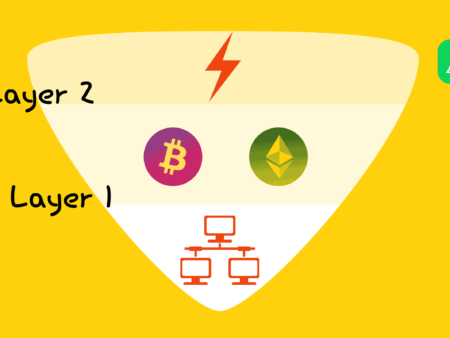[ad_1]
The crypto market is under ongoing development, and so are we. For a couple of months, we’ve been working hard to introduce you to our new product that fuels a decentralized part of the industry. Little sleep, tons of coffee, and dedicated passion have helped us launch our own decentralized exchange — Changelly DeFi Swap.
We’ve gathered the most common questions that may arise about Changelly DeFi Swap to provide you with insightful and accurate answers. If there are still any questions left, feel free to contact our support ninjas 24/7.
What is the difference between decentralized (DEX) and centralized (CEX) exchanges?
There are quite a few differences between DEXs and CEXs — after all, they work in fundamentally different ways. The biggest one is the fact that DEXs don’t use any intermediaries. Instead, they execute trades and determine rates with the help of smart contracts technology and Automated Market Maker (AMM) protocols.
Centralized exchanges, instead, just like the name suggests, have a centralized authority that manages the platform. Unlike decentralized exchanges, CEXs use order books to organize their trades.
Centralized exchanges are generally more convenient and user-friendly and offer the ability to make cross-chain transactions. However, decentralized exchanges have greater security and privacy, as well as — naturally — decentralization. Additionally, they also typically give users access to a wider variety of tokens that don’t usually get listed on CEXs.
What wallet should I use?
We support the direct integration of MetaMask, one of the most popular crypto wallets, as well as WalletConnect, a service that lets you connect over 170 different wallets to our platform.
If you don’t have a crypto wallet yet, or your wallet isn’t available in WalletConnect, we recommend trying out MetaMask. You can find our guide on MetaMask and how to install it in this article.
Once you have a wallet, you will need to get some crypto to start making swaps. You can buy cryptocurrencies with fiat on our marketplace.
Why do I only see [network name] tokens in the drop-down menu?
Because of the way crypto and DEXs operate, you can only swap tokens that belong to the same network — that’s why you might not find what you’re looking for in the drop-down menu. For example, you won’t be able to find BSC tokens, such as BNB, when you’re swapping on the Ethereum network.
We are currently working hard to implement cross-chain bridges that would allow our users to smoothly exchange tokens from different networks. Follow us on Twitter to keep up with product updates!
What are the main benefits of using Changelly DeFi Swap?
Changelly DeFi Swap is a DEX aggregator that is connected to over 100 different decentralized exchanges. It opens up swaps of 3600+ tokens on the Ethereum, Binance Smart Chain, Avalanche, Polygon, Fantom, and Optimism networks.
As an aggregator, our platform always finds the best paths for your trades depending on your needs and is guaranteed to give you the best rates on the market.
What are the gas price and the transaction cost?
The transaction cost is the total fee you have to pay for any swap you make; there are no other hidden fees. It includes our own fee of 0.1%, which is already accounted for in the rate, and the gas fee (gas price), which will be displayed separately.
Gas fees are paid to push your transaction through on the blockchain. If the network is busy, then gas fees will go up. Gas fees are notoriously high on the Ethereum network but are typically much lower on other chains. Our platform calculates the gas fee automatically depending on how busy the network is.
Please note that the gas fee is always paid in the native cryptocurrency of the blockchain, e.g. ETH for all swaps on the Ethereum network.
What is slippage?
Slippage is the price difference between an asset’s price when you initiate an exchange and the actual price you will have to pay.
On Changelly, you can set your slippage tolerance — the negative price difference you would be okay with.
If the price rises too high and its difference from the original price you agreed to go above your slippage tolerance, the transaction will fail, and you will get your tokens back. In this case, you will still have to pay the transaction fee — but it will be lower than the one you would’ve paid if the transaction went through successfully.
What is routing?
Routing is an automated process that finds the best available price/rate for a specific trading pair and amount. It can be carried out across multiple exchanges to get a better rate.
What does “give permission to swap” mean?
When you swap a token on a decentralized exchange for the first time, you need to approve it — give permission for Changelly DeFi Swap to access that token and swap it from your wallet on our protocol. This only has to be done once, but you will have to do it for every token you want to swap.
Please note that this doesn’t apply to native cryptocurrencies like Ethereum or BNB.
How can I track my transaction?
Tracking transactions on the blockchain is incredibly easy! All you need is your transaction hash and a block explorer.
When you exchange tokens on our DeFi Swap, you will get a link to the blockchain explorer for your transaction. Simply click on it to be able to see your transaction status at any time.
What makes up the transaction cost?
Our transaction costs are made up of the gas fee, which can vary depending on the network you’re using and how busy it is, and our 0.1% fee. Please note that our exchange fee is already counted in the rate.
Disclaimer: Please note that the contents of this article are not financial or investing advice. The information provided in this article is the author’s opinion only and should not be considered as offering trading or investing recommendations. We do not make any warranties about the completeness, reliability and accuracy of this information. The cryptocurrency market suffers from high volatility and occasional arbitrary movements. Any investor, trader, or regular crypto users should research multiple viewpoints and be familiar with all local regulations before committing to an investment.
Source link



